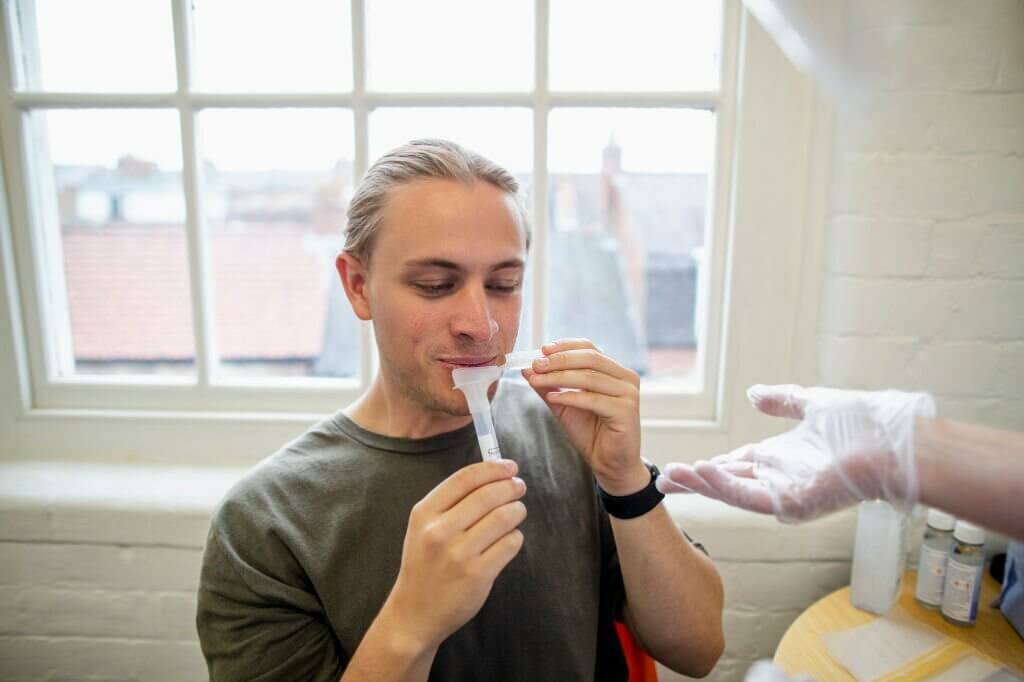News and Blogs
Saliva Collection Kits: A Versatile Tool for Diagnostics & Forensics

Saliva collection kits are increasingly being utilized for their ability to safely collect and stabilize salivary DNA and RNA for a variety of downstream applications. From disease testing to forensic identification, these non-invasive kits are revolutionizing diagnostics and bioscience.
Saliva contains cells, proteins, enzymes, and other biomarkers that can reveal a wealth of information about an individual’s health, ancestry, and identity. Saliva collection kits provide a standardized way to harvest these biological samples and preserve them for analysis through methodologies like PCR and next-generation sequencing. Some benefits of saliva testing include accurate detection of disease biomarkers, easier sample collection, and better patient compliance over alternatives like blood draws.
Saliva Collection for Disease Testing
Saliva collection kits allow doctors and researchers to detect biomarkers associated with cancer, autoimmune disorders, cardiovascular disease, neurodegenerative diseases, viral infections, and more. The non-invasive nature of these kits makes frequent patient monitoring and screening more feasible. Collected saliva can also be used for genetic testing to reveal predispositions to certain conditions.
Saliva samples are stable for up to 6 months when properly collected and stored, making them highly versatile for diagnostic purposes. The buffer solution added helps protect nucleic acid integrity and prevent contamination or degradation. Refrigeration is recommended to further preserve sample quality. The median DNA yield from a typical saliva collection is around 110 μg, providing ample material for most testing applications.
Forensic Applications of Saliva Testing
In forensics, saliva recovered from crime scenes can help identify suspects or victims and provide investigators with useful information. Saliva contains DNA that definitively connects to a specific person. It can also reveal attributes like biological sex, blood type, age, and smoking status. Specialized techniques allow forensic scientists to recover traces of saliva from skin, clothing, cigarette butts, and other surfaces.
The best practices for forensic saliva collection involve using either cotton swabs or filter paper to absorb fluid. Rubbing swabs along the inner cheek can maximize DNA yields. All samples require proper handling, storage and processing to maintain viability for identification. Reliable genotyping and DNA sequencing of these trace saliva samples has become routine thanks to technological improvements.
Innovation in stabilization buffers and extraction protocols allow saliva’s potential to be fully realized. High molecular weight DNA up to 23kbp can now survive for months without refrigeration. Kits also neutralize contaminants and nucleases during transport. This is expanding applications for saliva testing exponentially. The non-invasive collection combined with the wealth of biomarkers make saliva an invaluable analytical fluid.
In short, saliva collection kits are streamlining research and medical testing for a growing number of applications. Their versatility, non-invasiveness and ease-of-use make them an increasingly essential tool for diagnostic laboratories and law enforcement alike. Technological innovation will likely uncover even more valuable insights extractable from these simple saliva samples.
Click to View → Mantacc Saliva Collection Kits
Related Posts
Saliva Collection Kits: The Non-Invasive and Reliable Way to Collect Samples
How Do Saliva Collection Kits Improve DNA Quality and Stability?






